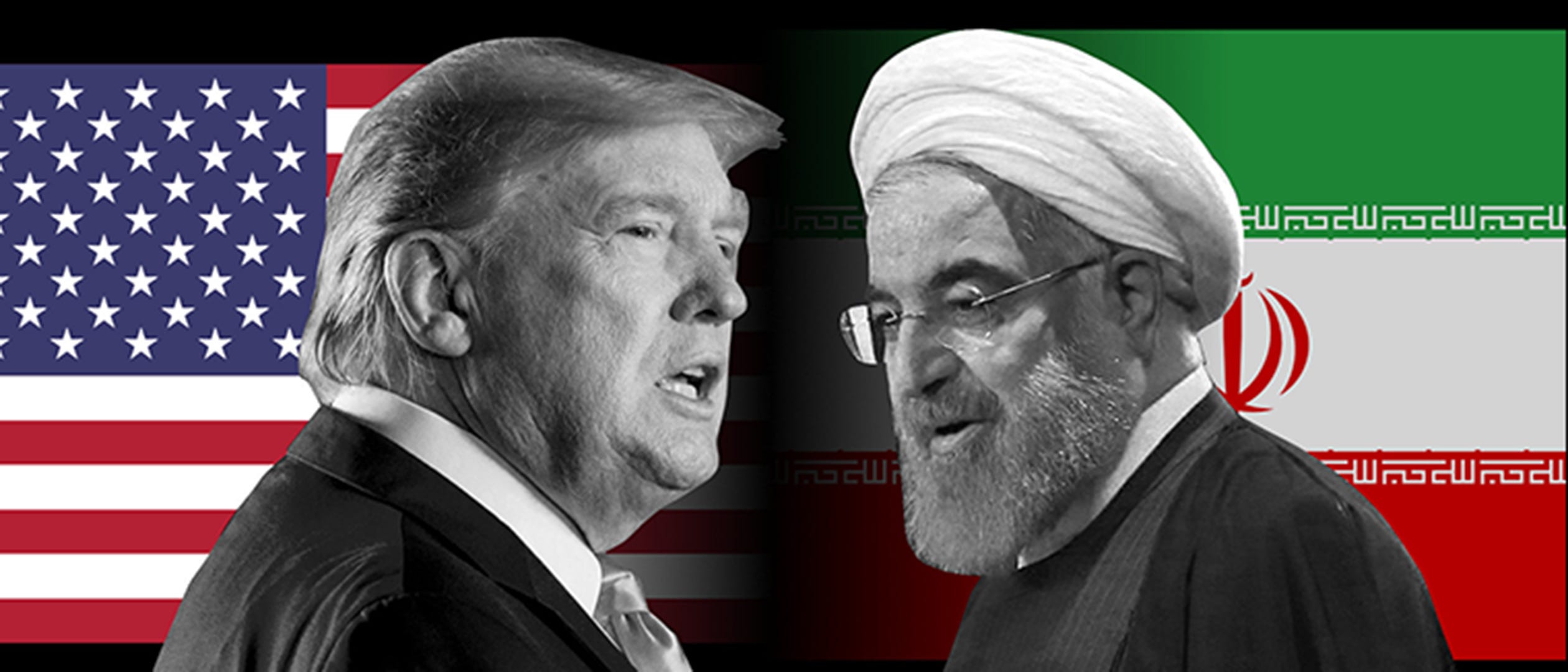Nuclear Deal Uncertain: U.S. And Iran Fail To Bridge Key Gaps In Talks

Table of Contents
Sanctions Relief Remains a Major Hurdle
One of the most significant obstacles to a new nuclear agreement is the issue of sanctions relief. Iran insists on substantial sanctions relief as a precondition for returning to full compliance with the Joint Comprehensive Plan of Action (JCPOA), the 2015 nuclear deal. This demand stems from the belief that the US withdrawal from the JCPOA in 2018 and the subsequent reimposition of crippling sanctions have severely harmed its economy.
However, the US remains hesitant to offer immediate and comprehensive sanctions relief. Concerns about Iran's past actions and its continued pursuit of advanced centrifuge technology fuel this reluctance. The US and its allies worry that lifting sanctions too quickly could embolden Iran and allow it to further advance its nuclear program.
- Specific sanctions under debate: The lifting of sanctions on Iranian oil exports, crucial for its economy, remains a major point of contention. Restrictions on Iranian access to the international banking system are another key sticking point.
- Differing interpretations of the "snapback" mechanism: Disagreements persist regarding the reinstatement of UN sanctions under the "snapback" mechanism, a crucial element of the JCPOA.
- The role of international verification and monitoring: The extent and nature of international verification and monitoring of Iran's nuclear activities are also areas of significant disagreement.
Concerns over Iran's Nuclear Program Advancements
Since the US withdrawal from the JCPOA in 2018, Iran has made significant advancements in its uranium enrichment capabilities. This has fueled serious concerns within the international community about Iran's potential to quickly produce a nuclear weapon. The enrichment levels achieved by Iran, combined with the size of its uranium stockpile, are far beyond what was permitted under the original JCPOA.
This has prompted the US and its allies to demand a more robust and intrusive verification regime to ensure Iran's compliance with any future agreement. Concerns about potential clandestine nuclear activities further complicate matters.
- Level of uranium enrichment: Iran has significantly increased its uranium enrichment levels, nearing weapons-grade levels.
- Size and scope of Iran's uranium stockpile: Iran's stockpile of enriched uranium has grown substantially, raising concerns about its intentions.
- Concerns about Iran's clandestine nuclear activities: Allegations of undeclared nuclear activities continue to cast a shadow over the negotiations.
Regional Security Issues Complicate Negotiations
Beyond the nuclear issue itself, regional security concerns significantly complicate the negotiations. Iran's involvement in various regional conflicts, its support for proxy groups, and its ballistic missile program raise serious concerns among regional players, including Saudi Arabia and Israel. These concerns directly impact the willingness of the US and other parties to offer significant concessions on sanctions relief.
The intertwined nature of the nuclear issue and regional security makes it difficult to isolate one from the other. Addressing regional security concerns is crucial to achieving a lasting and comprehensive agreement.
- Iran's missile program: Iran's ongoing development of ballistic missiles is a major source of concern for its neighbors and the international community.
- Iran's support for regional proxies: Iran's support for various armed groups across the Middle East fuels regional instability and complicates negotiations.
- The role of regional powers in influencing the negotiations: The positions and actions of regional powers like Saudi Arabia and Israel significantly influence the dynamics of the negotiations.
The Path Forward for the Nuclear Deal
The future of the Iran nuclear deal remains uncertain. Several scenarios are possible: a return to negotiations with renewed commitment from all parties, a complete collapse of the deal leading to a potential escalation of tensions, or a partial agreement addressing only certain aspects of the nuclear program.
Each scenario presents distinct implications for regional security and global non-proliferation efforts. A renewed commitment to diplomacy and a willingness to find common ground are essential to achieving a lasting solution.
- The potential role of international mediators: The involvement of international mediators could help facilitate dialogue and bridge the remaining gaps.
- The impact of a renewed US commitment to diplomacy: A clear and consistent US commitment to diplomacy is crucial for restoring trust and fostering progress.
- The possibility of a parallel track addressing regional security issues: Addressing regional security concerns through a separate but parallel track could potentially pave the way for a broader agreement.
Conclusion: The Future of the Iran Nuclear Deal Remains Uncertain
The key obstacles to reaching a new Iran nuclear deal remain significant: the deadlock over sanctions relief, concerns about Iran's nuclear advancements, and the inextricably linked regional security issues. The uncertainty surrounding the future of the Iran nuclear agreement leaves the international community facing potentially dire consequences for regional and global stability. The failure to reach a consensus underscores the urgent need for renewed diplomatic efforts and a commitment to finding a mutually acceptable solution. Stay informed about further developments in the Iran nuclear deal prospects, the future of the nuclear deal, and Iran nuclear agreement developments to understand the implications for the global community.

Featured Posts
-
 Us Stock Market Rally Fueled By Tech Giants Tesla In The Lead
Apr 28, 2025
Us Stock Market Rally Fueled By Tech Giants Tesla In The Lead
Apr 28, 2025 -
 Jj Redicks Positive Take On Espns Richard Jefferson Decision
Apr 28, 2025
Jj Redicks Positive Take On Espns Richard Jefferson Decision
Apr 28, 2025 -
 Former Nba Player Jj Redick Comments On Espns Richard Jefferson Situation
Apr 28, 2025
Former Nba Player Jj Redick Comments On Espns Richard Jefferson Situation
Apr 28, 2025 -
 Final Mets Rotation Spot What Young Pitcher Needs To Do
Apr 28, 2025
Final Mets Rotation Spot What Young Pitcher Needs To Do
Apr 28, 2025 -
 Is Pitchers Name Ready For The Mets Starting Rotation
Apr 28, 2025
Is Pitchers Name Ready For The Mets Starting Rotation
Apr 28, 2025
